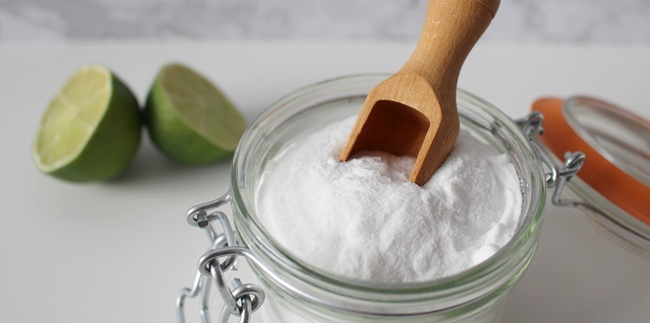Kapanlagi.com - Baking powder and baking soda are quite familiarly used in a number of sweet food recipes. However, most people seem to have difficulty knowing the difference between baking powder and baking soda because they are so similar. This is because both have similar colors and names but have certain characteristics and differences.
As we know, baking powder and baking soda are often used as additional ingredients in popular cake dough. Having almost similar names, it is not surprising that some people still find it difficult and confused to distinguish between these two basic ingredients. Besides having almost similar names, both also have a very similar white color.
In addition, both ingredients can be used as leavening agents but have certain characteristics and differences that are quite easy to recognize. Using the wrong ingredient in a food recipe, especially cakes, can result in your dish not turning out as expected. Therefore, knowing the difference between baking powder and baking soda is necessary to avoid making the wrong choice when using these two ingredients.
So what are the differences between baking powder and baking soda?
The differences between baking powder and baking soda are explained in the points below. So by knowing the difference between baking powder and baking soda can be a reference for you so that you don't make mistakes in choosing certain dish development ingredients. Here are 5 differences between baking powder and baking soda summarized from various sources.
1. Understanding Baking Powder and Baking Soda
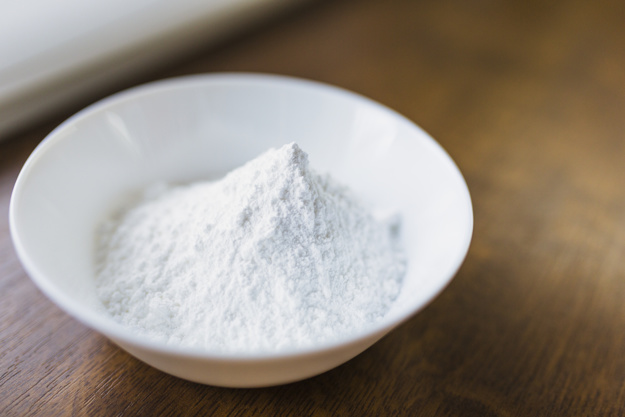
(credit: freepik.com)
Before recognizing the differences between baking powder and baking soda, it is good to know the definition of baking powder and baking soda. Because from the definition of both ingredients, it is easy to recognize their fundamental differences. Baking soda is known as sodium bicarbonate, one of the chemical compounds that is in the form of white powder like crystals. This compound dissolves in water and is commonly used as a food leavening agent, especially in baking. According to liputan6.com, sodium bicarbonate has alkaline properties.
On the other hand, baking powder is a leavening agent that is not entirely made of sodium bicarbonate but contains other compounds. One of them is the presence of a moist starch that has the main function of stabilizing the moisture of the dough so that it can maintain its freshness. In addition, based on its forming ingredients, baking powder can produce acidic properties.
Therefore, from these definitions, several fundamental differences between the two ingredients can be recognized, namely that baking soda is entirely made of sodium bicarbonate, which has alkaline properties. Meanwhile, baking powder has additional compounds that can stabilize the dough but has acidic properties.
2. The Function of Baking Powder and Baking Soda
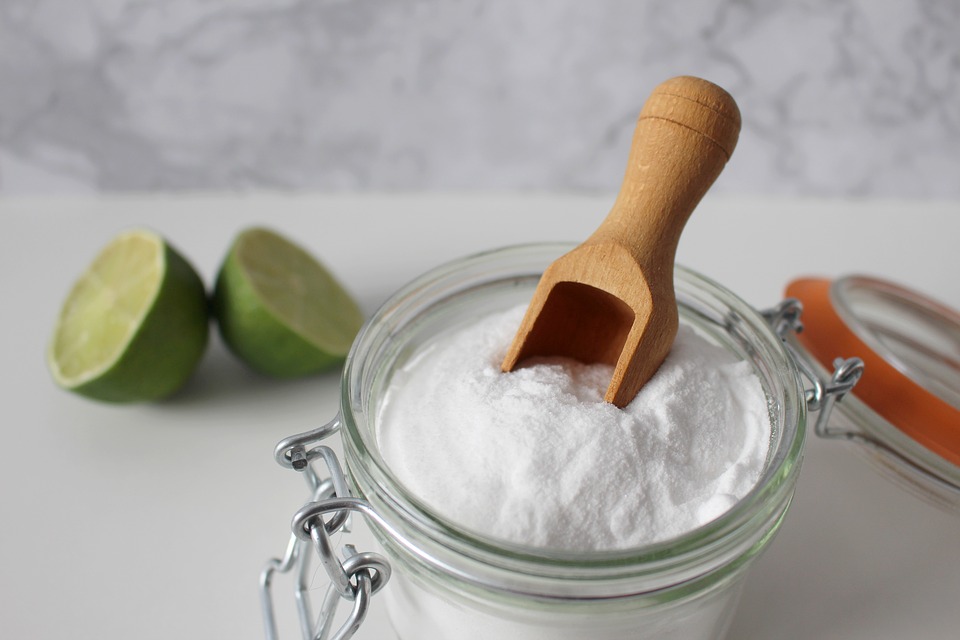
(credit: pixabay.com)
The difference between baking powder and baking soda can be seen from their functions. However, both ingredients function as leavening agents in food, especially in cakes. But in more detail, baking powder and baking soda have specific functions that can be recognized.
According to liputan6.com, baking powder, which previously contained other compounds such as cream of tartar and drying agents, functions to release carbon dioxide gas, which causes the wet dough to rise. After the cooking or heating process, the air bubbles will make the dough expand.
This happens because baking powder reacts to acid and base. The acidic nature of baking powder is divided into two types: fast-acting acid and slow-acting acid, known as double acting and single acting. The leavening agents react when the dough is still wet and expand when the dough is baked in the oven.
On the other hand, baking soda functions as a basic leavening agent that can make food rise without fermentation. In this case, baking soda reacts during the cooking or heating process. Baking soda is suitable to be added to foods that contain low acid content, such as yogurt, cheese, and others.
3. Difference in Taste
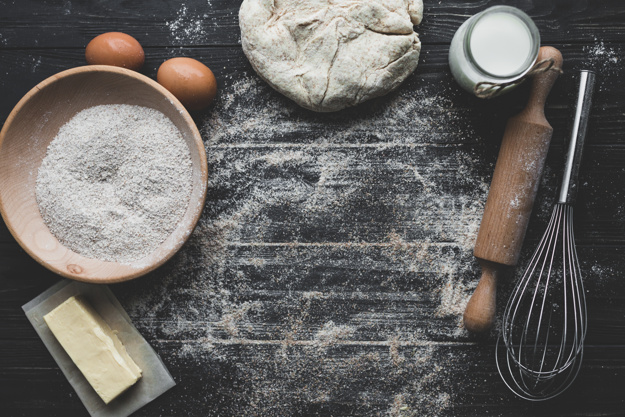
(credit: freepik.com)
The difference between baking powder and baking soda can be known from the difference in taste. In this case, baking powder does not have a sharp taste when added to the cake batter or can be said to not affect the taste of the batter. Meanwhile, baking soda has a bitter and tangy taste if too much of this ingredient is added to certain foods. Especially when baking soda is added to a batter that does not contain acid or without acid. So by seeing this difference, it can be clearly seen regarding the difference between baking powder and baking soda before using them as food additives.
4. Foods Suitable for Both Ingredients

(credit: freepik.com)
Baking powder and baking soda also have a number of specific food recipes that are suitable when adding both ingredients, where baking powder is more suitable for foods like biscuits or cakes. Meanwhile, baking soda, because of its alkaline nature, is suitable to be added to food recipes with acidic ingredients such as cheese, yogurt, lemon juice, and so on. In addition, baking soda also needs to be mixed with dry ingredients like flour before being combined with other ingredients, as reported by liputan6.com.
5. Benefits of Baking Powder and Baking Soda
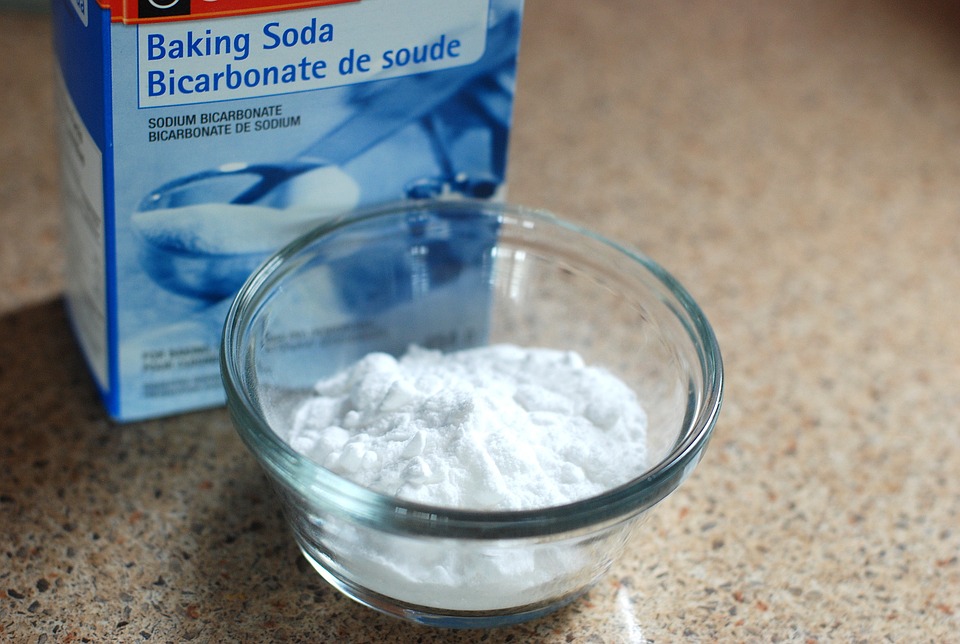
(credit: freepik.com)
After knowing the difference between baking powder and baking soda, these two ingredients also have recognizable benefits. Baking powder and baking soda are not only used as leavening agents but also have benefits for various daily activities such as cleaning items, whitening teeth, and beauty treatments.
So those are the 5 differences between baking powder and baking soda. By knowing these differences, it can make it easier for you to choose between baking soda or baking powder for certain food recipes.
(kpl/nlw)
Disclaimer: This translation from Bahasa Indonesia to English has been generated by Artificial Intelligence.
